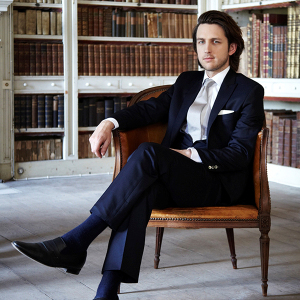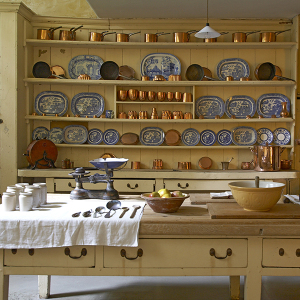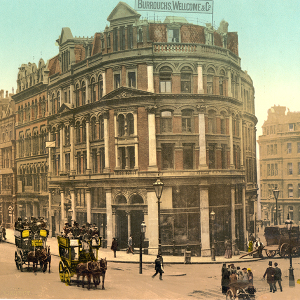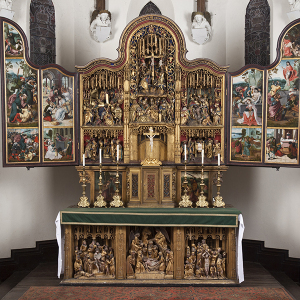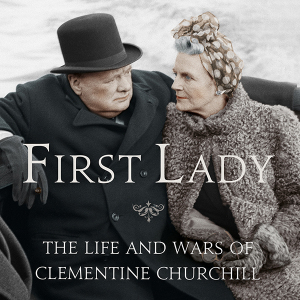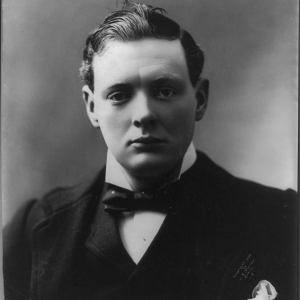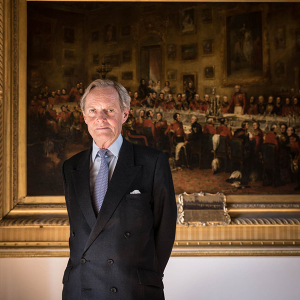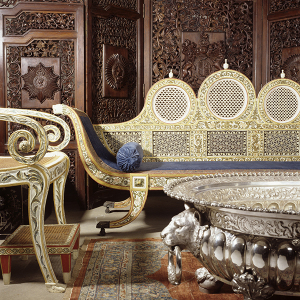Get your tickets today! Learn more
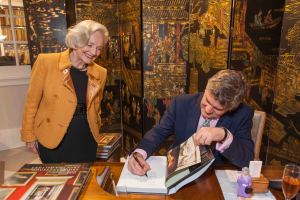
Royal Oak Director Kathleen Buoymaster and lecturer Jeremy Musson following Musson’s lecture in La Jolla, California. Judith Flanders kicks off our Fall 2015 lecture season this week
Judith Flanders kicks off our 2015 Drue Heinz lecture season this week, and we here at Royal Oak couldn’t be more excited. Not only is Flanders’ lecture, on Charles Dickens’ London, a captivating look at an unprecedented period of industrial growth, but it brings with it the promise of more fascinating lectures across the country in the weeks to come.
This fall season is packed to the brim with lectures and events, as we host 42 lectures and private events over the course of 10 weeks. We hope to see you at a lecture, as we’ll be traveling from Atlanta to San Francisco and everywhere in between in the months to come!
Take a look at the descriptions below and buy your ticket today:
A Family Legacy Restored: St. Giles House
Nicholas Ashley-Cooper, 12th Earl of Shaftesbury
St. Giles House, Dorset has been home to the Earls of Shaftesbury since the 13th century. Sir Anthony Ashley-Cooper, founder of the Whig party, became the first Earl in 1672 and was Chancellor of the Exchequer to Charles II. He laid the first stone of St. Giles House in 1650 and successive generations have made renovations, including a “modernization” by the 4th Countess that resulted in one of the greatest collections of 18th-century English furniture. Sadly, following World War II the house fell into disrepair and the family relocated, selling the majority of its possessions. It remained shuttered for 30 years, coming dangerously close to collapse. On becoming the 12th Earl of Shaftesbury, Nicholas Ashley-Cooper, inspired by his ancestors, embarked on a four-year restoration project to make St. Giles House a family home once again. Lord Shaftesbury will speak about this incredible project which won, among others, the 2014 Georgian Group Award, for the Restoration of a Georgian Country House.
New York, NY: November 5
Philadelphia, PA: November 9
Chicago, Illinois: November 11
Atlanta, GA: November 12
The Housekeeper’s Tale: The Women Who Really Ran the English Country House
Tessa Boase
Working as a housekeeper was a most prestigious job for a 19th -and early-20th century woman—but also one of the toughest. A far cry from fictional Downton Abbey, the real Mrs. Hughes faced capricious mistresses, poor wages, and grueling physical labor. The housekeeper of a country house might manage 100 servants and a budget on par with a small bank, and she was trusted with the family’s most intimate secrets. Delving into secret diaries, unpublished letters and neglected service archives, historian Tessa Boase reconstructs the lives of six women in gripping detail, from the 1830s to present day. She will illustrate the personal sacrifices and ambition that shaped their lives; also the scandals that brought their careers to an end (an unwanted pregnancy, a forbidden love affair and a prison sentence!). Ms. Boase’s heroines include the Victorian housekeeper, Sarah Wells at Uppark, and Edwardian beauty Ellen Penketh at Erddig.
New York, NY: November 10
Charleston, SC: November 12
Los Angeles, CA: November 16
San Francisco, CA: November 18
San Diego, CA: November 19
Tartan Tales: Stories from Historic Scottish Houses
Curt DiCamillo
From the Roman Emperor Diocletian’s palace in Croatia to Culzean Castle, a masterpiece by Robert Adam, historian Curt DiCamillo will offer an exploration of Scottish history using architecture and great houses as his guide. Some tales are about eccentric owners, like the 3rd Marquess of Bute, who built Mount Stuart, a 19th-century Gothic revival masterpiece on a remote Scottish island, while other stories highlight houses still in private hands, including Glamis Castle, the ancestral home of Queen Elizabeth The Queen Mother, and Drumlanrig Castle, owned by the Duke of Buccleuch and home to the only Leonardo Da Vinci painting in private hands. With appearances by Dwight Eisenhower, Rudolf Hess, Macbeth, and the Roman Pantheon, this fascinating lecture will paint a rich story of Scotland. Kidnappings, bloody battles, and cannibalism—these, together with glittering silver, timeless portraits, and some of the world’s finest Chippendale furniture, all play parts in this fast-paced and unique compilation of Scottish history.
New York, NY: November 23
The Victorian City: Everyday Life in Dickens’ London
Judith Flanders
The 19th century was a time of unprecedented transformation, and nowhere was this more apparent than on the streets of London. In only a few decades, London grew from a Regency town to the biggest city the world had ever seen, with more than 6.5 million people, railways, street-lighting and new buildings at every turn. In The Victorian City, historian Judith Flanders explores London’s outdoors in an extraordinary, revelatory portrait of everyday life on the streets. From the moment Charles Dickens, the century’s best-loved novelist and London’s greatest observer, arrived in the city in 1822, he obsessively walked its streets recording its pleasures, curiosities and cruelties. Through his writings, we are led through the markets, transport systems, sewers, rivers, slums, alleys, cemeteries, gin palaces, chop-houses and entertainment emporia to reveal the Victorian capital in all its variety, vibrancy, and squalor.
Boston, MA: September 30
Philadelphia, PA: October 1
New York, NY: October 5
Chicago, IL: October 7
Washington, DC: October 8
Traitors or Tastemakers? Recusant Country Houses & Collections
Dr. Tessa Murdoch
The English Reformation began in 1534 with The Act of Supremacy in which King Henry VIII declared himself ‘the only supreme head on earth of the Church in England.’ Any display of allegiance to Rome and the Catholic pope was deemed treasonous and had deadly consequences. Indeed it was under this act that Thomas More and Lady Margaret Pole, Countess of Salisbury were executed. During the 16th-18th centuries, those who refused to attend Anglican services were known as recusants and were subject to new taxes, fines, and land seizures. Dr. Tessa Murdoch will reveal that despite religious and political obstacles, recusants made great artistic contributions through patronage of art, music, and architecture. Her lecture will feature portraits, chapel furnishings, and furniture, plus Grand Tour collections that reflect the English recusant travel to 18th-century Catholic European cities. Treasures from important National Trust houses such as Coughton Court and Oxburgh Hall—still in private family ownership—will be featured.
New York, NY: October 13
Philadelphia, PA: October 14
A Quiet Collector: John Jones and his Extraordinary Legacy
Joanna Norman
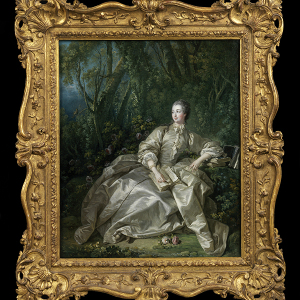
Portrait of Madame de Pompadour, by Francois Boucher, 1758 (courtesy of the Vicotria & Albert Museum, London)
In 1882, over 2,000 pieces of French art was unexpectedly left to the Victoria & Albert Museum. Its donor, John Jones, was unusual—he was not among the aristocratic collectors such as the Marquesses of Hertford, nor was he among those who built monumental residences to showcase their treasures, like the Rothschilds. Rather, he was a private man who made his fortune as a military tailor then spent the last two decades of his life amassing an impressive collection of 18th-century French art. In 1865, he acquired 95 Piccadilly Road and filled it ‘from basement to attic,’ even sleeping on a camp-bed next to a Rococo commode! Jones’s collection—which was little known until his death—elicited much criticism. Today, however, the bequest forms the nucleus of the V&A’s 17th- and 18th-century European art and design. Curator Joanna Norman will explore this fascinating figure and how he displayed and acquired his objects. She will also illustrate the V&A’s newly opened Europe 1600-1800 galleries which feature objects made by Europe’s finest artists and craftsmen.
Los Angeles, CA: October 12
San Diego, CA: October 13
San Francisco, CA: October 15
First Lady: The Life and Wars of Clementine Churchill
Sonia Purnell
Without Winston Churchill’s inspiring leadership, Britain would not have survived its darkest hour against the Nazi menace. Without his wife Clementine, however, he might never have become Prime Minister. Not only was Clementine Winston’s emotional rock and most trusted confidante, she was involved in crucial decisions of war and exerted influence over him and the government that would seem scandalous to modern eyes. Her charm and humanitarian efforts earned her deep respect from the public and behind closed doors at Whitehall. However, Clementine’s childhood was far from gilded. Born into impoverished aristocracy, her mother was a known adulteress and gambler, and by the time Clementine entered society she was the target of cruel snobbery. In Winston, she found a partner, and in his career she found her mission as Britain’s ‘First Lady.’ Ms. Purnell explores the peculiar dynamics of this fascinating marriage based on her book First Lady: The Life and Wars of Clementine Churchill. From personal and political upheavals, through the Churchill’s’ ‘wilderness years’ in the 1930s, to Clementine’s efforts during World War II, Ms. Purnell presents the inspiring but often ignored story of one of the most important women in modern history.
New York, NY: October 28
Chicago, IL: October 30
Philadelphia, PA: November 2
Young Titan: The Making of Winston Churchill
Dr. Michael Shelden
In modern memory, Winston Churchill often remains the man with the cigar, the great war-time orator, and the figure seen among bombed out ruins. Few can remember that at the age of 40 he was considered washed up, his best days behind him. However Churchill didn’t stumble into his later greatness. In a conscious and methodical way, he set out as a young man to become the hero that he believed his era of “great events” demanded. Author and historian Michael Shelden will talk about Churchill’s early life and career between 1901 and 1915, a time of intrigue, personal courage and grave miscalculations that both nearly undid him but also forged his character and led him to triumph during the WWII. He will also present a portrait of Churchill as the dashing young suitor who pursued three great beauties of British society with his witty repartee, political flair and poetic letters. This lecture will illustrate how Churchill’s success and political greatness was predicated on his formative years and his struggles to redeem the promise of his youth.
Atlanta, GA: October 6
Charleston, SC: October 7
Washington, DC: November 2
Boston, MA: November 3
The Battle of Waterloo and its Legacy
Arthur Charles Valerian Wellesley, 9th Duke of Wellington
June 18, 2015 marked the bicentennial of The Battle of Waterloo, a battle that would change the order and political structure of Europe. Its main legacy was a more stable continent, which only came to an end in 1914 with the outbreak of the Great War. After the Battle, the Duke of Wellington spent three years in France commanding an army of occupation while great efforts were made to find him a suitable country estate to be purchased with funds voted by Parliament. Many important houses were rejected—Houghton, Uppark, Luton Hoo, Bramshill—but finally Benjamin Dean Wyatt, acting for the Duke, found Stratfield Saye, Hampshire. The intention was to demolish the existing house and build Waterloo Palace but the project was never realized. Instead, the first Duke lived for the rest of his life in London at Apsley House and at Stratfield Saye. In celebration of the 200th anniversary of Waterloo, the 9th Duke, his great-great-great-grandson, who still lives in these houses, will discuss the battle and this unusual legacy.
New York, NY: November 18
Philadelphia, PA: November 19
Cabinets and Curiosities: Furniture in the National Trust’s Collections
Lisa White, MA FRSA FSA
With the generous support of Royal Oak, The National Trust embarked on an ambitious project to catalogue and research the vast collection of furniture at many of its properties. Art historian Lisa White will explore some of the wonderful, difficult, and often puzzling objects from this significant collection—from magnificent cabinets at Ham House and Stourhead, to gilded mirrors and tables at Petworth House; and even more ordinary items such as the Pedlar’s chest from Chastleton. What is the earliest piece of furniture? Which items belonged to famous royals? Do we know all the materials and techniques used to make these objects? And which present the greatest conservation challenges for the Trust? These are just some of the questions Ms. White will consider during her lavishly illustrated lecture.
Philadelphia, PA: October 19
New York, NY: October 20
Boston, MA: October 22
